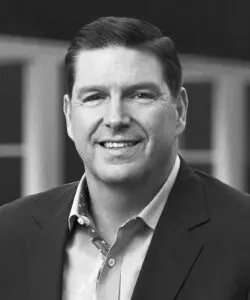Roger Crandall, chairman and CEO of Massachusetts Mutual Life Insurance, presides over a company that was founded in 1851 and boasts a customer who has had an insurance policy for 92 years. That kind of longevity—plus the MassMutual’s structure as a policyholder-owned mutual company—affords Crandall an opportunity to think about the long-term health and viability of the business rather than short-term results. He spoke with Fast Company about running a company for the benefit of customers rather than shareholders, and what CEOs who want to move toward “stakeholder capitalism” can learn from his experiences.
Fast Company: How does running a mutual company—one that is owned by your customers rather than public shareholders—change the way you lead? Does it encourage long-term thinking?
Roger Crandall: Most people have no idea what the heck a mutual company is. And then when they hear about it, they’re intrigued about how that fits with kind of the long-term nature of what we do [as an insurer]. Having to think about one set of constituents in such a long-term business is hugely valuable. The whole time I’ve been at the company, I’ve been able to think five to 10 years out, and not measure things on a monthly or quarterly basis. We compare ourselves on an operating basis to public companies, so we are as efficient as we can be, but I have no idea what someone on The Street thinks we’re going to earn in the second quarter. It just doesn’t drive what we do. And that, that I think is a really powerful and good combination.
FC: You sit on the Business Roundtable, which has announced a shift away from shareholder primacy and toward stakeholder capitalism. What insights can you share with CEOs of public companies who are taking a more holistic approach to thinking about the business and its constituencies?

We’re at this interesting point right now where large American businesses are helping drive change in a way that the political system struggled to do. If you think about LGBTQ equality, large businesses played a very significant role there. I think businesses are going play a huge role on social and racial justice. When I talk to our employees, particularly our younger employees, those are table stakes. They want to be at a company that has a purpose that they think of is aligning with what they see as being important.
FC: How does the inherent long-term nature of your business impact your company culture?
RC: We talk about the fact that we stand on the shoulders of people who make good decisions 30, 40, 50 years ago—and we get the benefit. We need to make sure we continue to run the business with the highest standards of integrity. We talk about how we help people secure their future and protect their loved ones. When you’re talking about it all the time, at some point, it becomes part of the culture of the company. The CEO is the worst person to ask, “What’s the culture?” But people who join us from the outside tell me it isn’t quite as cutthroat as some other companies. And they tell me that we have just been saying the same things for a very long time.
FC: Why do people come to work for MassMutual, especially those who have a lot of choices for employment?
RC: I think we give them very interesting problems to work on. I had a data scientist say, “I decided to come here instead of some place very big and well-known because there, I was going to take something that was already 80 or 90% optimized and move it to 95% optimized.” And, talk about damning with faint praise, they said, “You’re barely optimized at all!” We’re big enough and have the financial resources to do something really interesting, but our business has not been transformed yet, so you can see how you fit in and make a difference.
FC: How you balance innovation and risk taking with “long-termism” and risk management?
RC: [The long view] is inherent in our business. Our oldest policyholder has had his policy for 92 years. Every once in a while I’ll go back and just remind myself of what the world looked like when policies were written, in this case, in 1927. There weren’t, of course, vaccines of any kind. We were just starting to electrify the country. It was just a totally different world.
We won’t know if we’ve priced something correctly for 10 or 20 or 30 years. Most companies, as soon as they sell something, they know whether they made or lost money. We make a bunch of assumptions about mortality and morbidity and the level of interest rates, and then we make a promise to our policyholders. But whether it turned out financially the way we [expected]well, my successor will see how it actually plays out. If you cut corners and make bad decisions, you may not show up for a little while, but it’s going to turn around and hurt you.
Recognize your brand’s excellence by applying to this year’s Brands That Matter Awards before the early-rate deadline, May 3.
